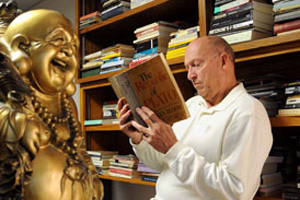What you should know: Education

 Education in America is and always has been a matter of local control; our schools belong to the people.
Education in America is and always has been a matter of local control; our schools belong to the people.
The 10th Amendment to the U.S. Constitution guarantees this right; because education is not named as a federal responsibility, it defaults to the individual states and their inhabitants. What this means is that Iowa enjoys an educational flavor idiosyncratic to its state’s history and culture, as does Alabama, New York, Alaska, and every other state in the union.
 Education in America is driven by the notion of in loco parentis—in place of the parent.
Education in America is driven by the notion of in loco parentis—in place of the parent.
As a consequence, we extend to our nation’s schools the most privileged of societal charges—to educate, nurture, and protect our children. The honor afforded to our teachers and our schools is a laudable one, yet it is also daunting as its weight is realized by few other professions. However, the notion of in loco parentis privileges both our schools and our society by forging an intellectual and emotional bond between the domestic and the public spheres.
 Education in America strives to fulfill John Dewey’s notion of the socio-civic mandate: essentially that public schools should prepare students for active and informed participation in a democratic society.
Education in America strives to fulfill John Dewey’s notion of the socio-civic mandate: essentially that public schools should prepare students for active and informed participation in a democratic society.
Since its inception, America has proved itself a pluralistic culture, and so the charge of bringing together vastly different racial, ethnic, and religious groups has largely fallen to our nation’s schools. E pluribus unum: out of many, one has proved itself the most effective means of negotiating this daunting task, and so the school has traditionally functioned as the place whereby we might form a common core-culture that seeks to honor diversity while simultaneously honoring our inherent commonalities.
 Education in America continues to be guided by the notion of meritocracy—that opportunity is afforded to all and that hard work will result in success.
Education in America continues to be guided by the notion of meritocracy—that opportunity is afforded to all and that hard work will result in success.
Thus, despite obvious inequities in our system, which are largely the result of local control in education, opportunity remains open to all students as they advance through the system. Although the U.S. Constitution makes no promise of an “equal” education, it does mandate a “free and appropriate” education to all of its citizens. As a consequence, American public education clings to its egalitarian ideals in both theory and practice by continuing to educate the masses.
 Education in America means that we continue to promote liberal learning.
Education in America means that we continue to promote liberal learning.
As such, students engage in diverse academic study throughout their years of public schooling. Curricular mandates ensure that students complete coursework in a variety of academic disciplines including math, English, science, foreign language, the fine arts, and social studies. The purpose of such study is to help students understand that knowledge builds upon knowledge and that existing knowledge clarifies new knowledge. Most importantly, a liberal public education helps students to recognize and understand the joys and rewards of knowledge so that they will hopefully become lifelong learners.



